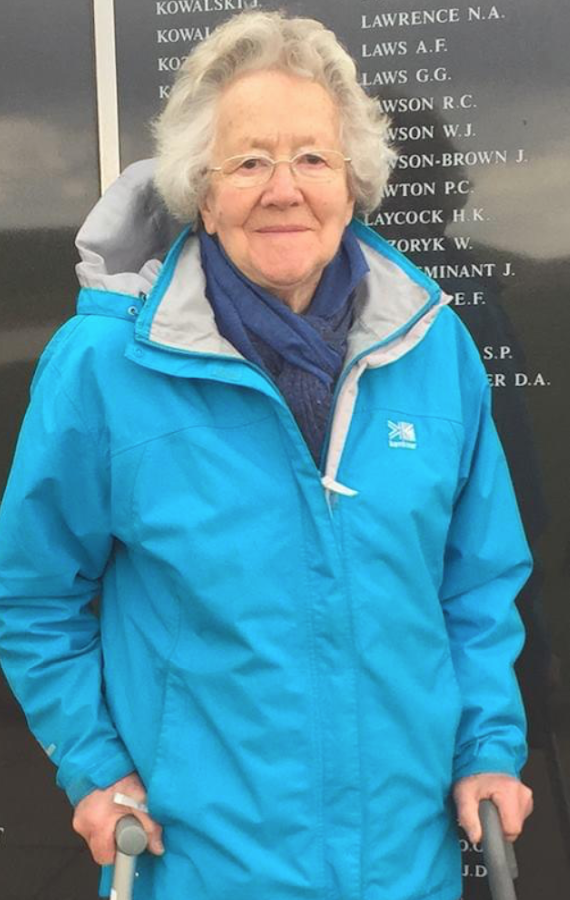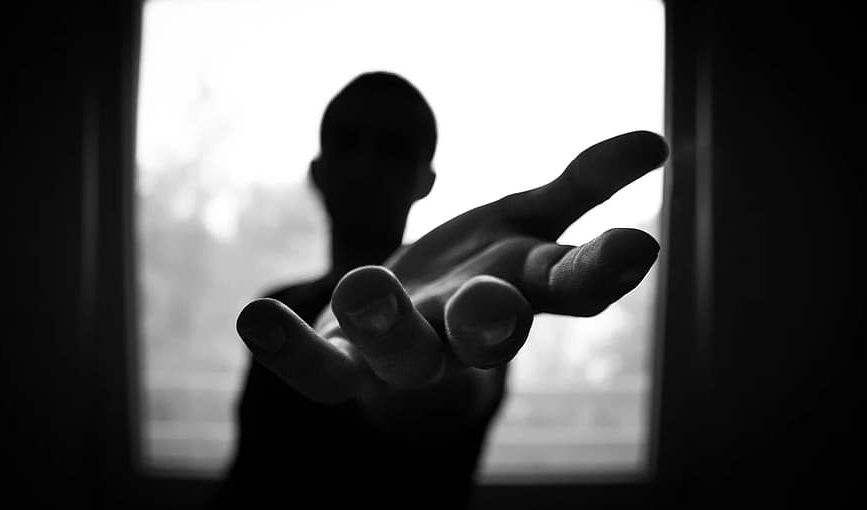By Alison van Diggelen, host of Fresh Dialogues
“Everyone deserves dignity at the end of life,” Isabel Stenzel Byrnes, bereavement counsellor and hospice care worker.
This week’s podcast is a deeply personal story of how the Covid-19 pandemic impacted my family. A shorter version aired this week on the BBC World Service program, Health Check. I dedicate it to my beloved mother, to those fearful for vulnerable family members, and to anyone who’s lost a loved one recently. And I offer sincere thanks to Isabel, Laura and Mary who shared their poignant and hard earned wisdom about dealing with death.
Listen to the BBC podcast (segment starts at 9:40)
Listen to the full story at the Fresh Dialogues podcast or below:
.
The Covid-19 pandemic has forced me to have a deeply uncomfortable conversation with my sisters. The topic? Our mother’s death. Despite warnings not to visit the elderly, my younger sister drove 500 miles from Kent to Scotland to visit our mother. A puzzling phone conversation convinced her that our 88 year-old mum needed help, urgently. So we made a pact one night: if mum did catch Covid, we’d keep her at home, come hell or high water. The thought of our sociable mum lying alone in a hospital bed, struggling for breath with no one holding her hand, broke our hearts.
Just a few hours later, I woke to the news that hell had arrived. Mum fell during the night and broke her pelvis. My sister watched, impotent, pleading as the ambulance crew –– decked out in full body protection –– stretchered her away. Grimacing in pain, she grasped at my sister’s hand, “Don’t worry, I’ll be OK,” she said. “You know I’m a tough old woman.”
We feared that would be the last time we’d see her alive.
 To make matters worse, I’m 5,000 miles away from Scotland, sheltering in California, where I’ve lived for more than two decades.
To make matters worse, I’m 5,000 miles away from Scotland, sheltering in California, where I’ve lived for more than two decades.
Earlier this year, the BBC’s Health Check asked me to explore a watershed moment in American healthcare: For the first time since the 1970s more Americans are dying at home than in hospital. My first reaction was: Nope, I can’t go there. Like many of us, I feared facing death.
But now it hit home for me, like an avalanche of mother-daughter worry. Witnessing the isolation of Covid hospital patients in painful technicolor online –– and the inability of loved ones to say goodbye –– has brought it all into sharp focus.
So why are the majority of Americans now choosing to die at home, and not in hospital? Do they miss out on specialist care and pain relief? What is “a good death,” and what will be the lasting impact of Covid on all this?
.
.
.
.
I spoke with Laura Carstensen who directs the Center for Longevity at Stanford University. She points out the mismatch between what the medical system traditionally offers and what people imagine at the end of life.
“Medicine historically has said: We’ll throw everything we can at a person to keep them alive and is not necessarily what people want,” she says.
Today about 80% of Americans say they want to die at home – or at least not in hospital.
In response, hospice care has grown rapidly over the last 10 years. The modern-day hospice movement was started in the UK in the late 1960s by a former nurse, Dame Cicely Saunders, who wanted to focus on the relief of symptoms like pain, whilst attending to their emotional and spiritual needs away from a hospital environment.
According to the National Hospice and Palliative Care Organization, the number of hospice patients on Medicare – the federal health insurance program for over 65 year-olds – has grown from 44% in 2012 to 50% in 2018. In the US, unlike the UK, in-facility hospice care is the exception, not the rule. So most American hospice workers provide care in patients’ homes.
Isabel Stenzel Byrnes works for Mission Hospice, a nonprofit organization in the San Francisco Bay Area.
“Everyone deserves dignity at the end of life,” she says. “Death is the ultimate equalizer. It doesn’t matter if you’re rich or poor, black or white, American or from another country. We will all die. So one of the philosophies of hospice care is to give everyone a death with love, support, presence, understanding and dignity. We want to honor the life they lived, and exit this world with grace and support.”
Stenzel Byrnes points out that unlike being in hospital, where unfamiliar surroundings and staff on constant rotation, and unexpected tests in the wee hours which can cause anxiety, dying at home can give people more calm and control.
“It’s different at home with a handful of close caregivers … who know your life story… can share stories and laugh. You can be understood and known at the end of life by the people surrounding you,” Stenzel Byrnes adds.
But, she cautions, there’s a risk of romanticizing death at home. It’s not always calm and predictable.
“Death is hard hard work for the patient and carers, and the family members,” Stenzel Byrnes points out. “It’s a long process of making peace….it can still be something that most of us will fight against. As Dylan Thomas said, most of us will not go gently into that good night. People die the way they lived. If people were defiant, and angry, hostile to other people, they’re probably going to be that way in the end.”
Hospice care can provide all the pain medication patients need in their dying days at home, but unlike in hospitals, it’s rarely 24/7, so family members can face a heavy burden.
Since 1982 Medicare has paid for hospice care services – providing their doctors say they have less than 6 months to live and they decline curative treatments like chemotherapy and ventilators – this can save patients exorbitant hospital bills. Instead of trying to prolong life at all costs, Mission Hospice’s Mary Matthieson explains that her team focuses on the quality of life, an approach she calls: “Cabernet over chemo.”
But dying at home isn’t just about saving money – it’s also driven by educational and cultural factors.
Influential doctors like Atul Gawande –– and Britain’s Rachel Clarke –– have helped shift attention towards palliative care, as well as “death positive” movements like Death Cafes, where people are encouraged to meet for tea and discuss death – and online awareness sites like “The Conversation”, help to reduce the cultural taboo around death.
So does Stanford’s Laura Carstensen believe that Covid-19 has jolted the world into considering the option of dying at home?
“I’ve already said to my husband: If I had Covid and having difficulty breathing: don’t take me to the hospital,” she says. “A lot of people are saying that – do NOT take me to hospital. It’s the last place I want to go at the end of my life. We’re doing ourselves and other people a favor by talking openly and we’re obliged to help people we care about get what they want.”
The forced isolation of Covid patients is necessary to protect the wider community, but it’s troubling to think of patients dying alone.
“It’s even worse than that,” says Laura Carstensen. “Medical professionals are incredibly stressed themselves, overburdened. It’s hard to imagine that people have time to sit and hold the hand of someone. There’s every reason to think that a lot people are ending up in their very last minutes of life are very much alone.”
Isabel Stenzel Byrnes is also a bereavement expert – and worries that the speed of the virus doesn’t allow anticipatory grief.
“I’m very concerned that bereavement will have added regret, guilt and what we call counterfactual thinking: I would’ve, should’ve done something differently,” she says. “The one solace is the collective grief we’re all experiencing. Everyone on this planet is impacted in some way. You’re not alone if you’ve lost a loved one to Covid. There are thousands like you that are grieving…”
But Byrnes also believes a silver lining will come from this pandemic. That it will produce an awakening and help lessen the taboo of death – helping us to realize that simply talking about death will not make it more likely to happen.
“The epidemic is a natural source of anxiety and stress. It awakens a primitive survival instinct: we want to control as much as possible…” says Stenzel Byrnes. “It confronts us with death and we can think about death without it happening. There’s a myth if we talk about death it will happen. That’s like saying if we talk about sex we’re going to get pregnant. That’s a complete myth. What Covid is doing is: it puts death and dying as a more familiar topic…the idea of death becomes a kitchen table topic that we can openly discuss with friends and family and what is most important to us and what our wishes might be, when our time comes.”
And that’s exactly what Covid did for my family. For us, the kitchen table was the sometimes precarious connection of a Skype call.
After the ambulance crew whisked our mother to hospital, my sisters and I spent an agonizing eight hours waiting, pacing and trying to reach the hospital for news. Late that night, they called to say that mum was coming home.
For the last few weeks, my sisters have been caring for her in her crowded little granny flat. We’ve all had some powerful conversations –– and some hilarity –– about what matters most in life, and in death. My mother tells me how delighted she is that the potatoes in her garden are beginning to sprout vibrant green shoots. She’s also said several times: I’ve had a good life, I’d rather go quickly…
I take a deep breath and feel sad and impotent, so far away. But I’ve also had time reflect on this wisdom from Isabel Stenzel Byrnes, the bereavement counsellor:
“Ultimately the more we talk about death, the more we embrace life,” she says. “Death and life go hand in hand and if we love life dearly we also have to love this idea that it will end. And we can live more fully by accepting that.”




